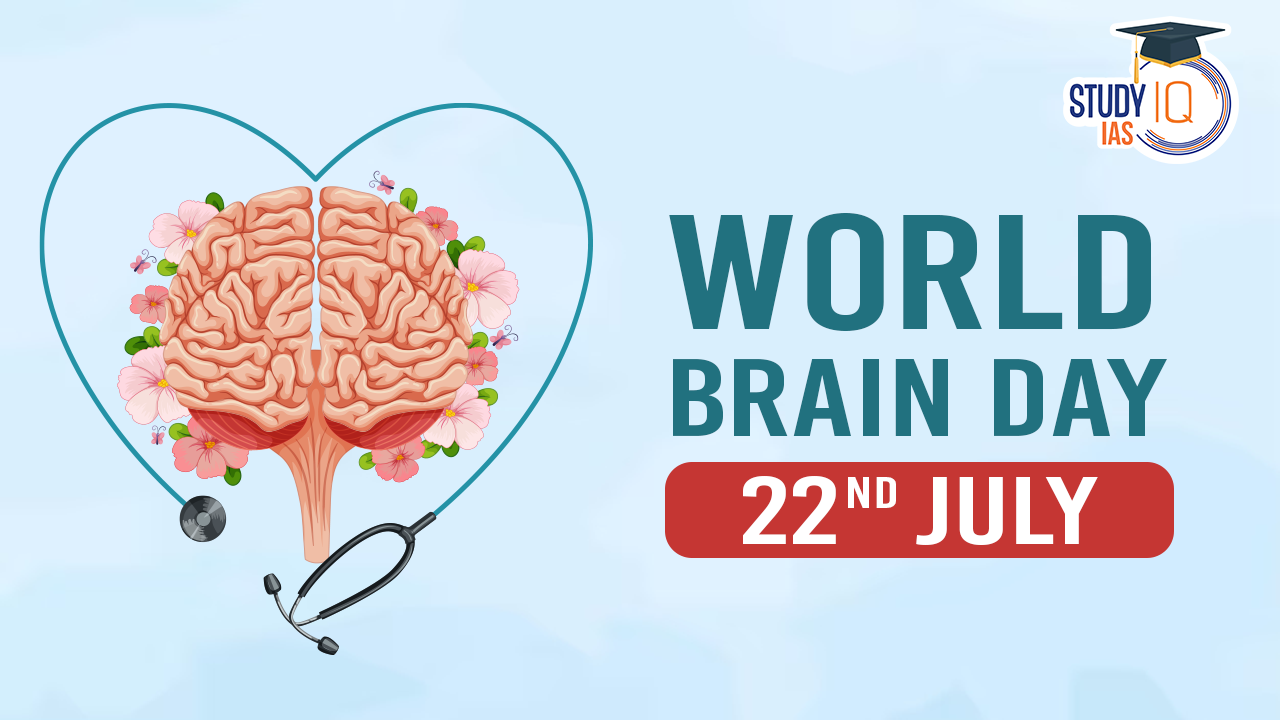Table of Contents
World Brain Day 2025, observed annually on July 22, is a global health awareness campaign initiated by the World Federation of Neurology (WFN) to raise consciousness about brain health and neurological disorders. With millions of people worldwide suffering from brain-related conditions, this day acts as a powerful reminder to prioritize brain wellness and adopt preventive healthcare strategies.
What is World Brain Day?
World Brain Day, observed annually on July 22, is a global health campaign launched by the World Federation of Neurology (WFN) to raise awareness about neurological diseases and promote brain health for all. The day emphasizes the importance of early intervention, mental wellness, and accessible care for brain-related disorders.
Since its inception, World Brain Day has grown into a major platform for education, outreach, and advocacy regarding the prevention and treatment of neurological conditions such as stroke, dementia, epilepsy, Parkinson’s disease, and more.
World Brain Day 2025 Theme
Theme: “Brain Health for All Ages”
The official theme for World Brain Day 2025 is “Brain Health for All Ages.”
This year’s theme focuses on:
-
Promoting brain health from childhood to old age
-
Ensuring equitable access to neurological care
-
Increasing awareness about early diagnosis, stroke management, and head injury treatments
-
Advocating for district-level government healthcare systems to offer accessible neuro-care across all regions
By highlighting brain health across all life stages, the 2025 campaign aims to address the rising global burden of neurological disorders and the importance of preventive lifestyle changes.
History of World Brain Day
World Brain Day was first established in 2014 by the World Federation of Neurology (WFN) to coincide with its founding date on July 22. Since then, the day has been celebrated globally with a new theme each year to spotlight a specific neurological condition or aspect of brain health.
Key Milestones:
-
2014: Inaugural World Brain Day
-
2015-2022: Focused on specific neurological diseases like epilepsy, migraine, Parkinson’s, etc.
-
2023: Theme shifted to “Brain Health and Prevention”, emphasizing proactive measures against cognitive decline
-
2024: Continued focus on early intervention and mental resilience
-
2025: Expansion to inclusive, age-wide brain health awareness
The campaign has since evolved into a collaborative effort between neurologists, health organizations, NGOs, governments, and the public to combat the stigma and burden of brain diseases.
Significance of World Brain Day
World Brain Day plays a crucial role in:
-
Spreading global awareness about brain-related illnesses
-
Reducing the stigma around mental and neurological conditions
-
Encouraging early intervention, which improves outcomes
-
Promoting brain-friendly lifestyles to reduce the risk of cognitive decline
-
Pushing for policy-level changes to ensure equitable access to neuro-care
With neurological disorders being among the leading causes of disability and death worldwide, this observance is critical for building healthier, more informed societies.
Why Brain Health Matters
Brain health is central to:
-
Learning and memory
-
Emotional well-being
-
Daily decision-making and productivity
-
Physical coordination and mobility
-
Aging gracefully and independently
Neurological conditions such as Alzheimer’s, stroke, brain injury, and multiple sclerosis significantly impact quality of life and often go undiagnosed or untreated, especially in low-income and rural communities. Hence, raising awareness through events like World Brain Day is vital for early detection, care, and support.
Lifestyle Tips for Better Brain Health
Here are simple, science-backed ways to maintain a healthy brain at every age:
-
Get 7–9 hours of quality sleep
Sleep improves memory, attention, and clears toxins from the brain. -
Exercise regularly
Activities like walking, swimming, or yoga enhance blood flow and reduce the risk of stroke and dementia. -
Eat brain-friendly foods
Include omega-3 fatty acids, antioxidants, and anti-inflammatory foods such as:-
Walnuts
-
Fatty fish
-
Blueberries
-
Leafy greens
-
Olive oil
-
-
Stay mentally engaged
Read, play puzzles, learn new skills or languages to boost cognitive reserve. -
Manage stress effectively
Practice mindfulness, meditation, and deep breathing to reduce cortisol levels. -
Build social connections
Isolation can accelerate cognitive decline—stay engaged with family, friends, and community. -
Avoid harmful habits
Reduce alcohol, quit smoking, and avoid illicit drugs to protect long-term brain health. -
Hydrate your brain
Even mild dehydration impairs concentration and memory. Drink at least 7–8 glasses of water daily.
Global Call to Action
The World Federation of Neurology and partnering organizations use this day to host:
-
Free awareness webinars
-
Brain health screenings
-
Public seminars
-
Social media campaigns
-
Policy discussions on neurological healthcare access
The message is clear: Everyone deserves a healthy brain—regardless of age, income, or geography.
Conclusion
World Brain Day 2025 is a powerful reminder that brain health is lifelong health. The theme “Brain Health for All Ages” inspires us to act early, live consciously, and push for a healthcare system that supports neuro-wellness for all.
By making small, consistent lifestyle changes and advocating for awareness, we can reduce the burden of neurological diseases and build a mentally stronger, healthier world.


 India vs Pakistan T20 World Cup 2026 Liv...
India vs Pakistan T20 World Cup 2026 Liv...
 One Lakh Crore Urban Challenge Fund Appr...
One Lakh Crore Urban Challenge Fund Appr...
 The Administrative Challenge of Scale in...
The Administrative Challenge of Scale in...




















